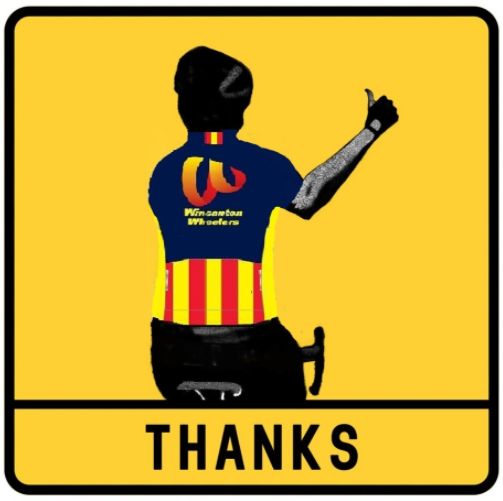
Ride Leaders - We Need You.
What are the benefits of being a Ride leader?
Volunteering as a ride leader not only benefits the wider community by enabling people to be happier and healthier through cycling, but it also benefits those who perform this essential task.
Sharing local knowledge and love of a particular area is very rewarding.
As ride leader, you usually get to choose the distance of the ride, as well as the stopping points along the way. So, whether you enjoy a gentle pootle and a leisurely catch-up over coffee, or you’re more of a head down mile-eater, the pace and style of the ride is entirely up to you (taking into account any specific needs of your riders too, of course)!
As ride leader, you may also enjoy better fitness, due to having to commit to actually turning up for the scheduled ride - (try never to cancel a ride unless there are extenuating circumstances such as illness or extreme weather conditions). Some people struggle with motivation but being the ride leader means you have a cast iron incentive to get out of bed and go outdoors, even if you’re not particularly feeling like it - and you’ll feel the better for it.
Riding in a group is a social activity and you will automatically be extremely popular for taking on the role of ride leader, having the opportunity to make new friends, and possibly benefit from their experience and knowledge of cycling too. However, occasionally you may find you are out front leading while everyone is busy chatting in the bunch behind you! This may be a little frustrating if you like a chat too but at least you have the satisfaction of knowing that your riders are enjoying the ride
As ride leader, you have duty of care to the people you are leading to ensure that they have a good time and stay as safe as possible while out on their bikes.

What does it take to be a ride leader?
Being a ride leader is a rewarding activity, enabling more people to experience the joy of cycling, whether in a town or city, or out in glorious countryside. Volunteer ride leaders may come from all sections of the community, whether experienced group members or relatively new to the activity.
There are no particular qualities, training or knowledge required to lead a leisure ride, except perhaps common sense and an enthusiasm for cycling, alongside a desire to share that passion with others.
Other attributes might come in useful that make the experience more enjoyable for all, including:
- Patience
- A friendly, welcoming attitude
- A sense of humour
- Empathy
- Punctuality
- Flexibility
In addition to the above, a few practical skills may come in handy. For example:
- Navigational skills - either using a Garmin-style device, paper maps or just good local knowledge.
- Bike maintenance skills - sometimes you may be asked to help with small adjustments to riders’ bikes, but extensive mechanical knowledge is not expected.
- First Aid skill - formal qualifications are not usually required unless you are a professional ride leader/instructor, or you are leading rides for a particular institution or organisation.
- Knowledge of the Highway and Countryside Codes - it’s important not to give cyclists a bad name by, for example, riding on the footway or on footpaths.
- Communication skills to help convey instructions and understand the needs of your riders
Remember that different people can bring different things to rides, so don’t worry if you can’t meet all these expectations - perhaps you have other knowledge, skills or experience that are useful? For example, you might know all about local wildlife or a town’s hidden landmarks to make a ride more interesting.
All Ride leaders have an obligation to avoid creating distressing situations. Therefore, you are expected to:
- respect everyone as an individual.
- provide a good example of acceptable behaviour.
- respect everyone’s right to privacy.
- show understanding when dealing with sensitive issues.
- adhere to the organisation’s policies.
